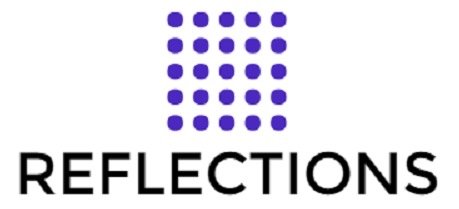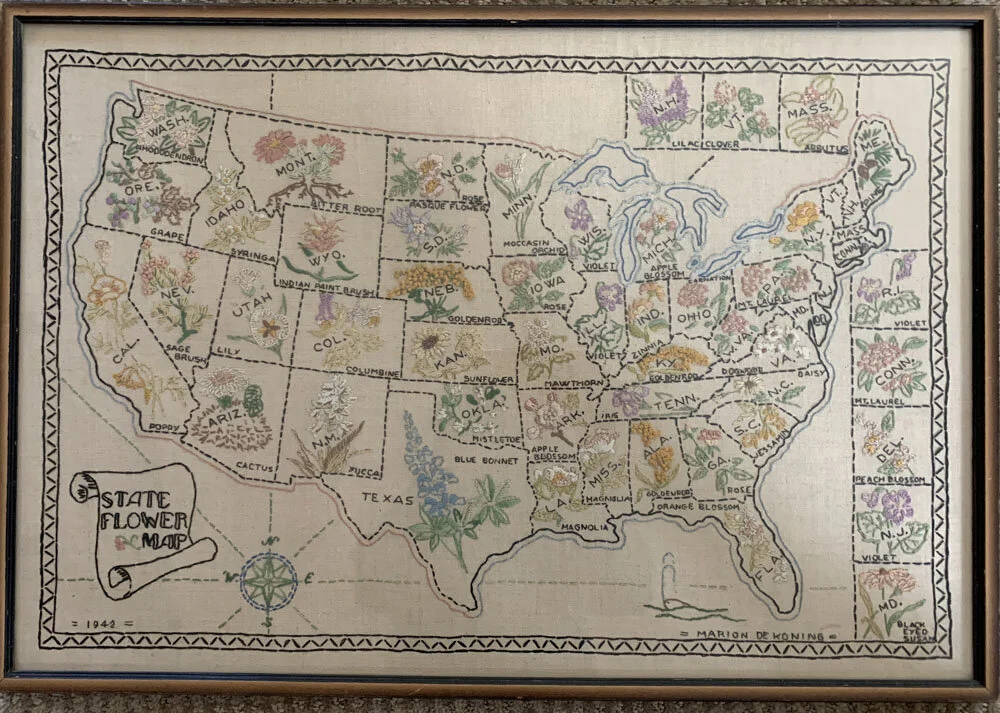Family Secrets -- Family Wisdom
Oct. 31, 1943 - Wedding of Marion DeKoning and Robert Hayek in home of Edith Inches
Family Secrets — Family Wisdom
My family had secrets. I think most families do, but they might be referred to as “things we don’t talk about” rather than secrets. As a child I was aware that I wasn’t supposed to ask how my parents met or what they did before marriage. In occasional fits of anger my dad would reference a mysterious hospital stay, which was never explained. Dating and sex were not discussed. Sex education consisted of pamphlets left on the coffee table and an occasional tv show left on with no explanation.
As an adult I became aware of other topics the family had avoided: the hardships of war, Japanese internment camps, the Holocaust, racial inequities, and the impact on the family of pandemics. Cemetery visits and conversations with relatives brought to light family members I had never heard of, apparently because of early deaths or disabilities. Thinking of all these important omissions as an adult, I wished I had had a chance to discuss them with my parents.
During this current pandemic quarantine, my feelings about my parents have jumped back and forth between appreciation for the life skills and personal values they conveyed to me by example, and frustration that some of the harsher realities of life were not discussed, nor the specific coping strategies that helped them live long, productive lives.
Cover of My Own Two Feet by Beverly Cleary, published 1995
Books have helped me better understand family secrets. Beverly Cleary was a favorite author of my childhood. She was born in 1916, a year before my mom, and grew up in the same Portland neighborhood as my parents. Cleary and my mom attended the same elementary school and were part of the same Camp Fire Group. She published her first book, Henry Huggins, in 1950 and wrote at least 30 books, mostly for children, through her 80’s. She now lives in California and recently had her 104th birthday.
In 1995, she published a memoir entitled My Own Two Feet. Since she was a friend of my parents, she alerted our family that my dad was mentioned in her book. While that seemed an interesting fact, I didn’t initially know what book she was talking about, nor the reason he was mentioned. I had a busy life at that time and didn’t immediately find and read the book.
When I eventually read the Cleary memoir, here’s what I learned: My dad had a prior marriage that had never been mentioned to me. Beverly Cleary was a bridesmaid at the wedding. The bride, Virginia, died a year later following an appendectomy. She was buried in her bridal dress. Beverly Cleary describes her experience as a bridesmaid and her shock at learning of the tragic death. Shortly after that, she herself became engaged. Her parents did not approve of her fiancé. In her book she explains the influence of Virginia’s death: “I knew Mother and Dad would never give me a wedding. Suddenly I was angry and weary of trying to appease them. Why not get married now? Life was fragile. Virginia, the happy bride, had died so suddenly. Why should Clarence and I wait any longer.”
Years after I read this story, my aunt and dad provided additional details. My mother had been Virginia’s college roommate and sorority sister. My mom’s boyfriend had been killed in a car accident.
While my parents had known each other for years, they only became a couple after they had each lost their partners tragically, a story my mother was never able to tell me. My dad shared the story, with tears in his eyes, a few years before he died at age 95. It was the only time I’d ever seen him cry.
I wanted to share my parents’ story, but struggled with how to approach it. As I was trying to sort out my attitude toward my parents, I heard an interview on NPR. I usually listen to the radio early in the morning and often doze through many of the stories. I heard the words “family secrets” and suddenly was wide awake.
Cover of Missed Translations by Sopan Deb, 2020
Missed Translations by Sopan Deb was published in April, 2020. After hearing the author interview, I knew I had to read the book. The author had what he considered a miserable childhood, raised by emotionally distant and secretive immigrant parents. Following many years of little or no contact with either parent, he decided to end the silence, by completing recorded interviews with each parent, that he told them would become part of a book. Despite the differences in culture and geography, there were many similarities in our family experiences.
Two parallels might be considered strange coincidences. His favorite childhood author was Beverly Cleary. After he had nearly finished all his family research and considered himself mostly reconciled with his parents, his uncle made a startling disclosure that suddenly put all the family secrets into context: Deb’s mother had experienced a tragic prior marriage that she could never bring herself to talk about. After that startling discovery, Deb had the information and understanding needed to have valuable follow-up talks with both parents, to fill in missing information and to appreciate what they had accomplished despite the many challenges they faced as parents. Note: Unlike Sopan Deb, I did not consider my childhood “miserable,” although there were times during my teen years when I felt miserable and misunderstood by my family.
When first envisioned, this blog post was intended to be about all the valuable lessons my parents taught me that laid the foundation for me to deal with the current pandemic with relative confidence. I thought about all the challenges they faced in their lives, only some of which are described above. However, they rarely or never discussed those challenges and, when they did, they rarely set out a path for overcoming adversity.
Embroidery by Marion DeKoning, 1942
I now realize that the wisdom of the elders in my family wasn’t conveyed through detailed accounts of tragedies and instructions regarding how to cope with them. The legacy they provided is from how they lived their lives:
1. Not dwelling on hardships, but instead finding alternate paths to happiness.
2. Gaining and using life skills such as sewing, cooking and gardening.
3. Respectful interactions with all people, regardless of age, wealth, culture or ethnicity.
4. Good nutrition and regular exercise. Attending to medical issues when needed.
5. Respecting science, professional expertise and lifelong learning.
6. Participation in the community through church and other activities.
7. Generosity to others, family, friends and the community.
8. Living life frugally, saving for a rainy day, and investing for children’s education and their own retirement.
Crossstitch by Carolyn Hayek, 1986
Those values have been passed on to me. I now realize that the example of lives well lived is more important than the omission of parts of their personal stories.
Secrets are a part of life. Some private memories are too painful to share. We gather the wisdom of elders by observing their lives, emulating their best qualities, and having compassion regarding those things the family has chosen not to share.
Picking the right books to read and relatives to interview can provide context and clarity to the mysteries of family history.
Marion and Bob Hayek at ages 86 and 91, 2003






